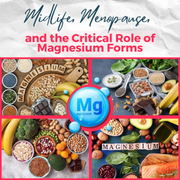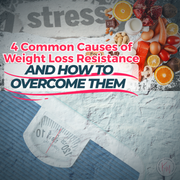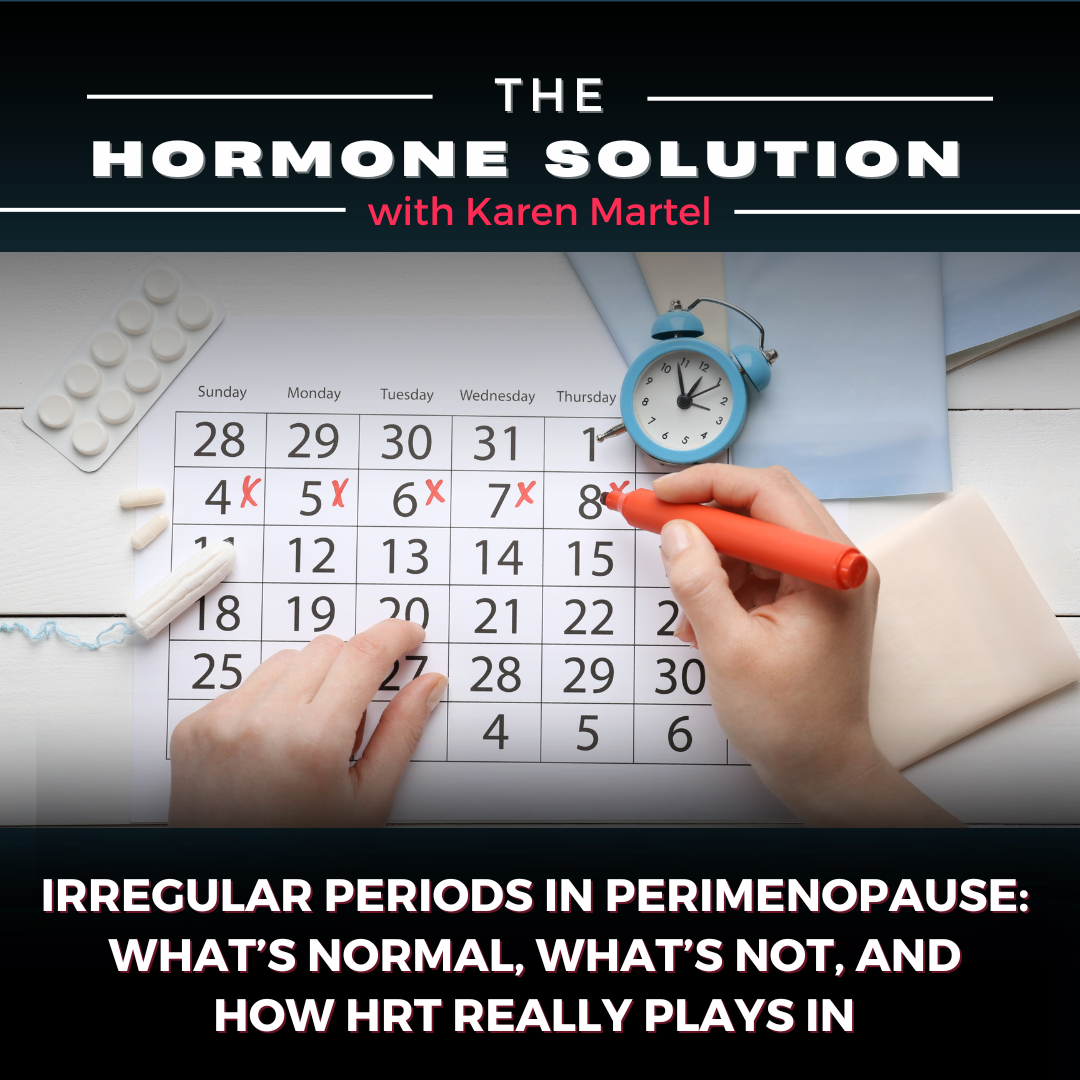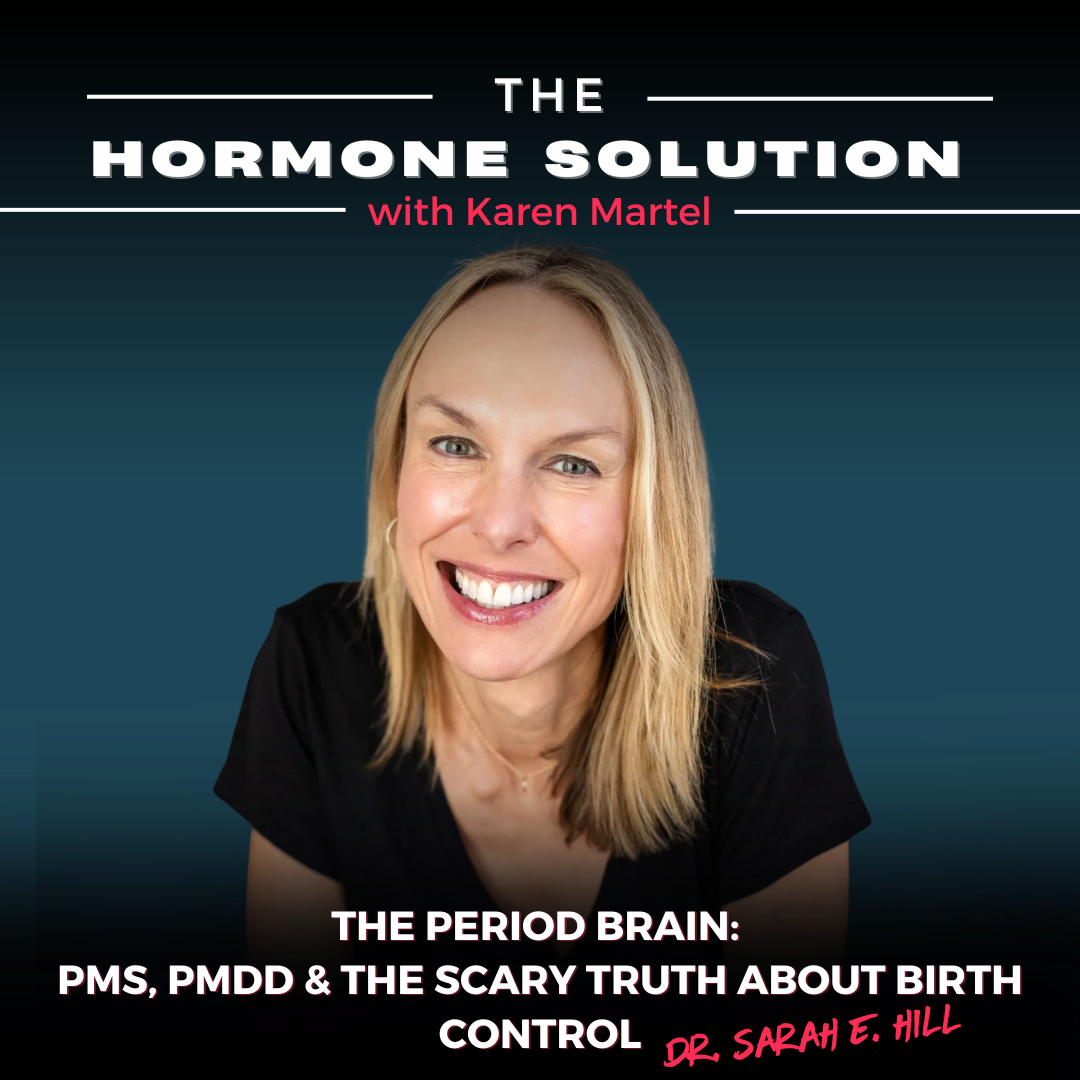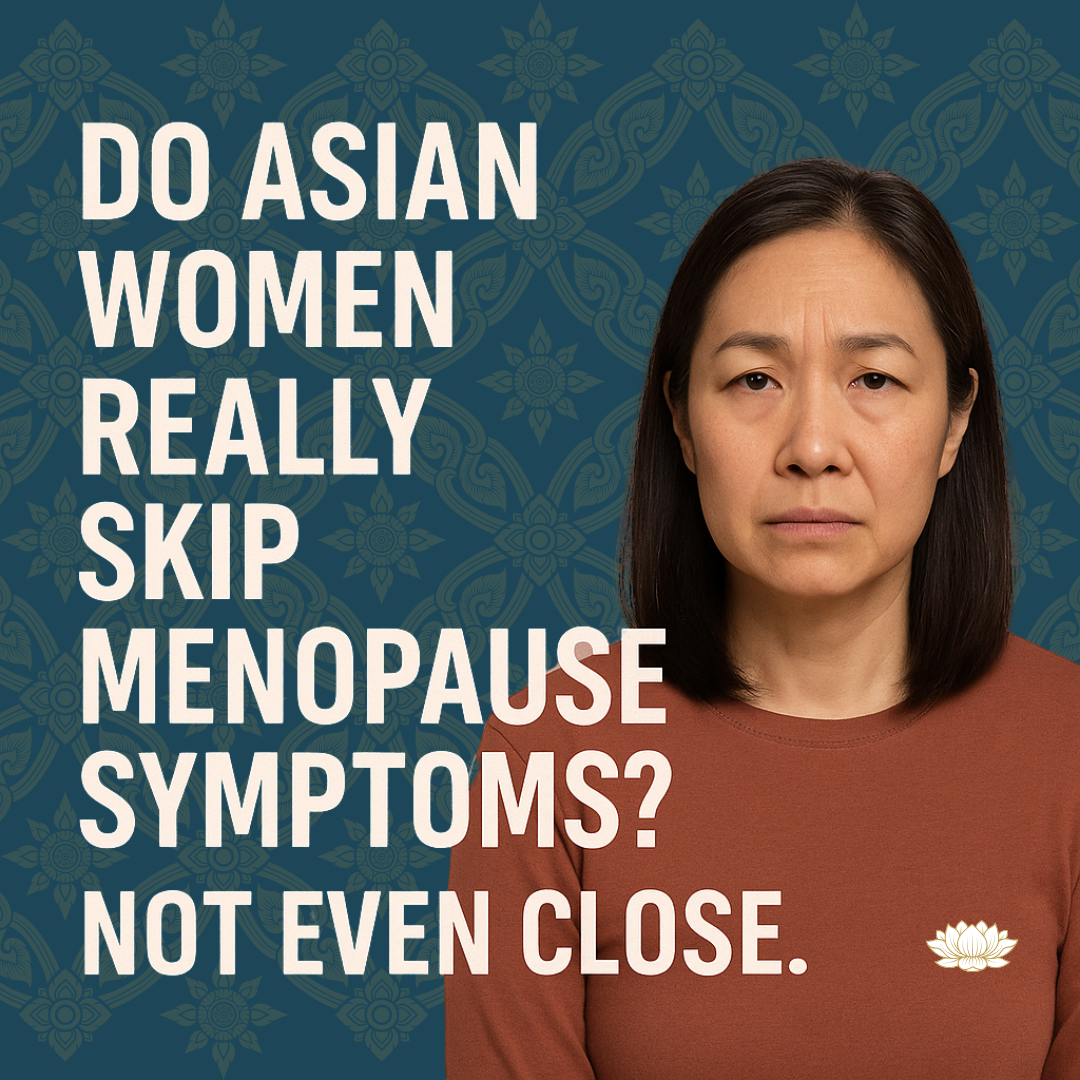
Do Asian Women Really Skip Menopause Symptoms? Not Even Close.
There’s a stubborn little myth floating around that Asian women don’t get menopause symptoms—or if they do, it’s all just a gentle breeze and a cup of green tea. Cute, but not true. The reality? Asian women absolutely experience menopause, but how those symptoms show up—and how they’re handled—can look quite different compared to what we commonly see in Western women. It’s time we bust this myth wide open and bring some global clarity to the hormone conversation.
Different Continents, Different Symptoms
Let’s break it down:
In Asia: More Aches and Sleepless Nights
Across many Asian countries, women are more likely to report musculoskeletal symptoms—think body aches, shoulder tension, back pain, and stiff joints—rather than the classic hot flashes and night sweats we talk about so much here in the West.
One study in Vietnam found joint pain was nearly universal—up to 96% of women reported it. Sure, some of that could be related to osteoarthritis, but even when that’s accounted for, the joint pain persists as a major menopausal complaint.
And insomnia? It’s no joke. In Korea, about 14.3% of middle-aged women struggle with it, and that number jumps during perimenopause. Some studies show insomnia and fatigue rates ranging from 32% to 58% depending on the population. And we’re not talking “can’t fall asleep once in a while”—we’re talking chronic, frustrating, wide-awake-at-3-a.m. sleep disruption.
In the West: Bring on the Hot Flashes
Meanwhile, women in the U.S. and Europe are far more likely to report vasomotor symptoms like hot flashes and night sweats. About 60–80% of American women experience hot flashes. Compare that to just 5% in some Southeast Asian populations. That’s not nothing, but it’s a huge difference.
Mental Health? Pretty Much the Same
Psychological symptoms—mood swings, anxiety, depression—are pretty universal. But the way they’re talked about, reported, and treated is heavily influenced by culture. Some cultures normalize emotional shifts as part of life transitions, while others might treat them more medically.
So What’s Behind the Differences?
Here’s where things get juicy.
-
Diet & Lifestyle: Asian diets are often rich in soy and phytoestrogens, which may provide a natural hormone-balancing effect. And culturally, menopause is sometimes viewed as a wise and welcomed stage of life—not something to “treat.”
-
Genetics: Research suggests differences in how estrogen is metabolized could impact symptoms. Asian women may break down estrogen in ways that result in fewer hot flashes.
-
Healthcare Access & Education: Awareness and access to HRT (hormone replacement therapy) vary, but let’s be clear—Asian women do use HRT, especially in urban areas with solid healthcare infrastructure.
Zooming In: What the Research Shows
-
Vietnam: Joint pain is a top menopause complaint. Yes, knee osteoarthritis is common—but the pain still holds even after adjusting for that.
-
Korea: Insomnia spikes hard during perimenopause.
-
China and Beyond: Chinese women show symptom patterns more similar to North American women than to Japanese women—reminding us that Asia is not a monolith.
-
Southeast Asia: Fewer hot flashes overall, but that doesn’t mean the experience is “easy.”
Culture Shapes the Menopause Experience
One of my favorite nuggets from recent research looked at Mosuo, Yi, and Han women in China. Turns out, women in matrilineal cultures (like the Mosuo) view menopause very differently than those in patriarchal ones. It affects how they perceive their symptoms, whether they seek help, and how they navigate the transition.
This is a huge reminder that menopause isn’t just biology—it’s beliefs, identity, support systems, and access to care.
Here’s the Bottom Line:
Menopause doesn’t wear the same outfit everywhere.
Asian women do experience menopause symptoms—just not always the ones we expect. And yes, many of them use HRT, particularly in areas with strong medical care.
We’ve got to look at the full picture: diet, culture, genetics, access, and education all shape how menopause shows up in a woman’s life.
The more we understand these differences, the better we can support women everywhere on their midlife journey.
Sources:
-
Sub-Ethnic Differences in the Menopausal Symptom Experience
Haines, C. J., Xing, S. M., Park, K. H., Holinka, C., & Ausmanas, M. K. (2005).
Asian Journal of Andrology, 7(1), 26–31. [PMC2838208] -
Climacteric and menopause in seven south-east Asian countries
Boulet, M. J., Oddens, B. J., Lehert, P., Vemeer, H. M., & Visser, A. (2008).
Climacteric, 11(5), 380–392. [PMID: 19434878] -
Study shows high prevalence of knee osteoarthritis in Vietnam
Nguyen, T. V., & Ho-Pham, L. (2012).
PLOS ONE, Garvan Institute of Medical Research -
Prevalence of insomnia and its relationship to menopausal status in Korean women
Shin, C., Kim, J., Lee, S., Ahn, Y., & Joo, S. (2005).
Psychiatry and Clinical Neurosciences, 59(4), 395–402.
[DOI: 10.1111/j.1440-1819.2005.01391.x] -
Psychological and cultural correlates of illness conception and menopausal symptoms:
A cross-sectional and longitudinal comparative study of Mosuo, Yi, and Han women
Frontiers in Psychiatry, 2025.
[DOI: 10.3389/fpsyt.2025.1496889]

Find Karen Martel on Apply Podcast
Karen Martel is a Certified Hormone Specialist and Transformational Nutrition Coach dedicated to empowering women through their health journeys.
As the host of the popular podcast The Hormone Solution, Karen tackles the complexities of hormonal health, weight loss resistance, and the challenges that come with perimenopause and menopause.
Her mission is to disrupt outdated narratives surrounding women's health, providing reliable information and practical solutions that help women reclaim their vitality.
Tune in to discover how to embrace life's stages while enhancing overall well-being.

